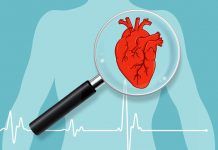That sharp stinging pain gravitating from the left side of your chest to the upper chest region is quite painful, right? While this itself might not be significant of congestive heart failure, the same could be a potent symptom.
How many times have you foregone a “normal” chest pain as something trivial? Think about it. Quite a lot of times, right?
In this article, we are going to explain why it is important to take such conditions seriously in order to cure congestive heart failure if that is the underlying cause behind the problem.
What is Congestive Heart Failure?
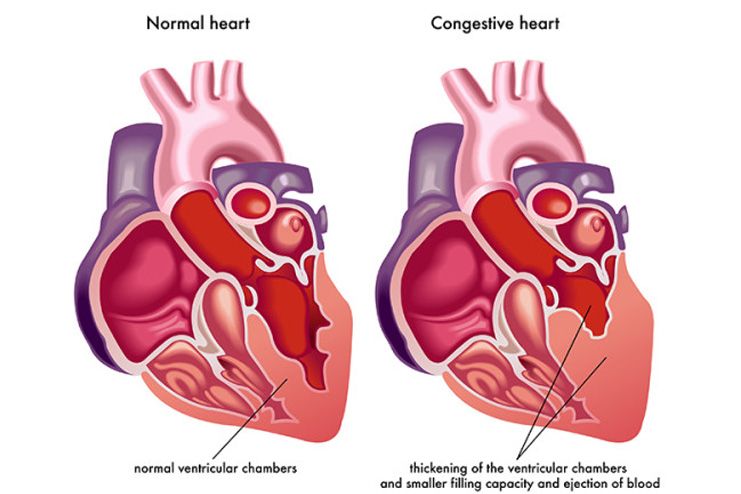

Congestive heart failure (CHF) is a progressive disease and does take time to infest and cause drastic impacts on the cardiovascular functioning of the body.
The condition is mainly seen to impact the overall pumping capabilities of the heart. The term “heart failure” is very loosely bound given the fact that the “inactivity” of the heart is mainly caused because of the fluid buildup in the heart. This is what often ends up preventing the heart to pump blood efficiently.
Our heart is comprised of four distinct chambers – two atriums and two ventricles. While the ventricles are responsible for pumping blood to the other parts of the body, the atria is responsible for receiving the blood from the other parts of the body.
Congestive heart failure is predominantly caused when the ventricles fail to pump the blood back to the body efficiently while the atria keep receiving blood into its chamber.
The constant build-up of the fluid and the blood is what causes an alarming condition, often accumulating around in the lungs, abdomen, liver as well as the lower portion of the body.
If left untreated, congestive heart failure can end up being a threat to one’s life, imposing risks of heart attacks or dysfunctioning of the other organs in the body.
Stages Of Congestive Heart Failure


Now that we have more or less walked ourselves through the basic description of what CHF is, it is important we discuss about the stages that are involved in this condition.
It is very important to be wary of these stages to be able to find ways for early diagnosis and effective treatment for managing the condition altogether.
There are predominantly 4 stages involved:
- Stage – I
- Stage – II
- Stage – III
- Stage – IV
The stages are a clear indication of the fact that the condition is chronic but progressive as well.
Stage – I
The preliminary stage of the congestive heart failure is often hard to detect because of the lack of evident signs and symptoms.
People who are at a higher risk of developing this condition include people who are suffering from the following conditions:
- High blood pressure
- Coronary artery disease
- Metabolic syndrome
- Alcohol abusers
- Past history of rheumatic fever
- Family history of cardiomyopathy
Coming to the treatments, they are quite superficial and easy to abide by. Some of the effective treatments for managing the condition of CHF in the first stage include:
- Opt for ways to manage hypertension
- Quit smoking and alcohol consumption
- Get proper treatment for lipid disorders
- Beta blockers for managing high blood pressure
It is possible to manage the condition if it is in the first stage with effective lifestyle changes.
Stage – II
Stage II is often taken for granted, especially because of the symptoms it showcases. The condition is often characterized by heart palpitations and fatigue and shortness of breath when you indulge in physical activities.
If you are wondering who are at a higher risk, the same includes:
- People who have been diagnosed with systolic left ventricular dysfunction
- Past history of heart attack
- Possible infarction because of cardiomyopathy
- Valve disease
When it comes to the mitigation or treatment procedures for the same, it more or less includes the basic of what we have for Stage – I along with a few more:
- Intake of Angiotensin converting enzyme inhibitor or angiotensin II receptor blocker
- Beta blockers for patients with a history of heart attack
- Surgical options for coronary artery repair
Stage – III
People in the third of the congestive heart failure stages tend to experience a lot of symptoms when it comes to them engaging in any form of physical activities. Even the slightest of exertion with physical activities have the capability of leaving one tired, fatigued and even cause a drastic impact on their breathing.
While the main people at risk are the ones suffering from systolic heart failure, given the fact that it is a progressive condition, any accessory reason could be contributing to the worsening condition altogether.
Coming along to the treatment options, there are a few extended options as well as important ways in which one can mitigate through the condition in a much better way. Some of them include:
- Intake of ACE inhibitors as well as beta blockers for steady heart function
- Diuretics are often prescribed by the doctor as well
- Management of salt intake on a daily basis
- Proper weight management
- Proper monitoring of the drugs that could make the situation worse
- Cardio re-synchronizing therapy for a worse condition
- Defibrillator for the advanced stage into this
Stage – IV
The last and possibly the most drastic stage is what characterize the stage – IV of the congestive heart failure. People suffering from systolic heart failure as well as the ones suffering from the advanced stages of this condition are at a heightened risk of developing this stage.
In terms of treatment options, the patient does need to indulge in an overall treatment for the condition, some of which include:
- Following the treatment options for all the above stages
- An immediate medical cure for the optimal cure of the condition
Causes of Congestive Heart failure

There are a number of factors that influence the overall condition of the congestive heart failure symptoms and could even make the condition worse if not handled properly.
Some of the common causes behind the CHF include:
1. Hypertension or High Blood Pressure
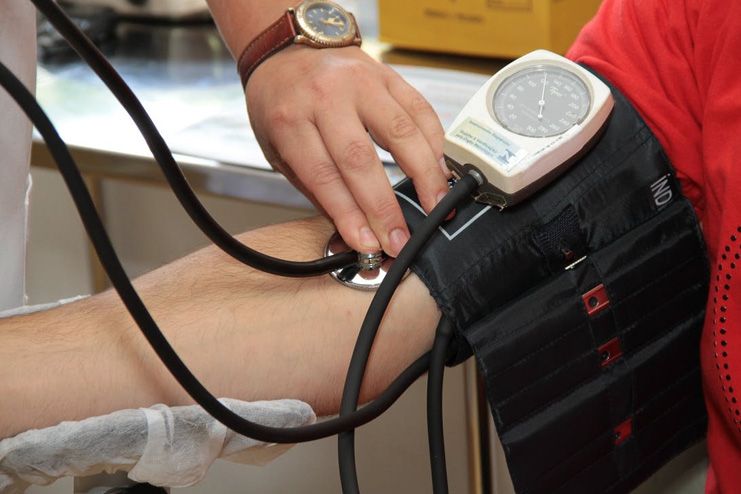
2. Coronary artery disease (CAD)
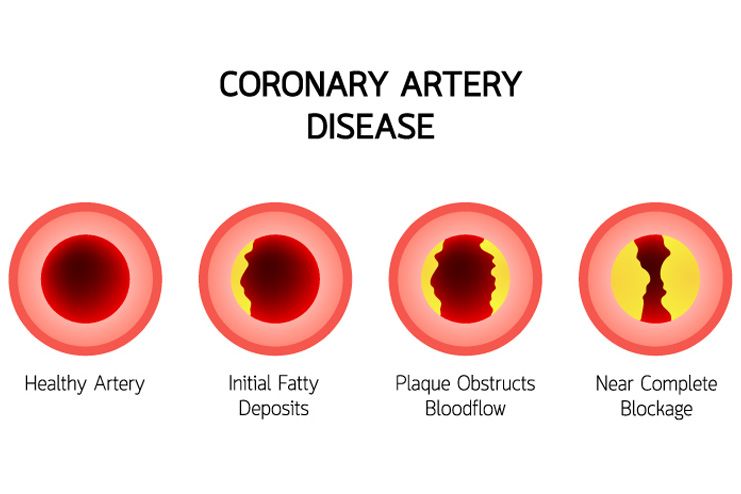

As the name of the condition suggests, CAD is caused when the deposition of the cholesterol and fatty deposits end up affecting the normal blood flow through the arteries.
The obstruction in the arteries often ends up prohibiting optimum blood flow to the heart, thus contributing to causing the condition of congestive heart failure. It does end up causing the heart to be deprived of the optimal levels of oxygen and nutrients which is beneficial for the overall functioning of the heart.
3. Impairments in the Valves
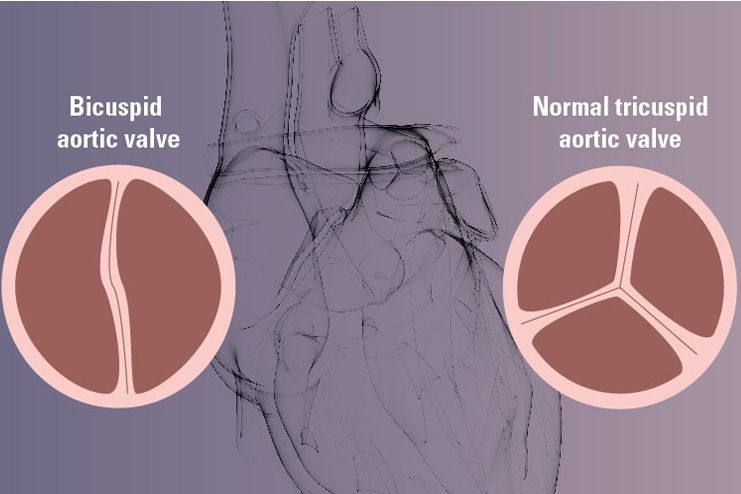

Any kind of impairments with the heart valves have the potency to cause issues with the heart functions.
If you didn’t know, the valves are like the “passageway” which regulates the inflow and outflow of the blood and nutrients in and out of the heart to help ensure proper filling and emptying of the heart chambers.
When the valves fail to open or even close properly, it ends up forcing the ventricles to end up pumping harder to compensate for the lack of the proper valve function.
Suffering from conditions associated with heart valves do have the potency of contributing to this condition. Given the severity of the condition, it is very important to ensure that you seek immediate medical help to combat the problems effectively.
4. Heart Attack


Given the fact that heart attacks are predominantly witnessed in patients with issues with the coronary artery blockage and such, it is not surprising that people who have suffered from heart attacks are at a heightened risk of developing congestive heart failure.
Experiencing a heart attack does have impacts on the heart muscle, causing scarring in the muscles that do end up making that part of the heart inactive altogether.
5. Cardiomyopathy
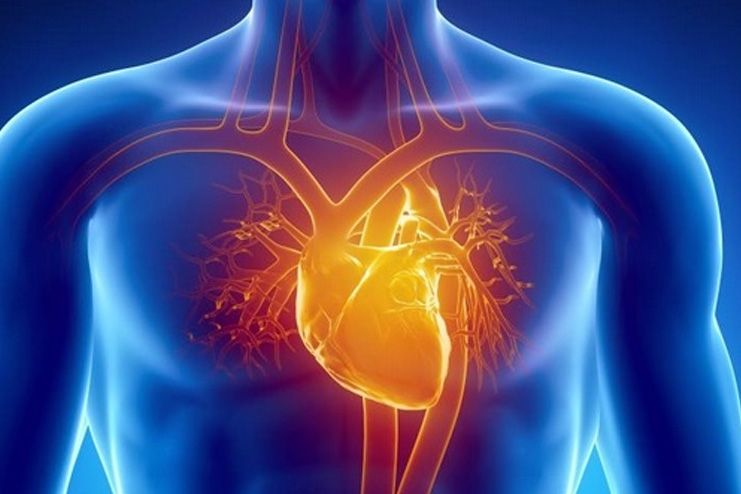

Coming to Cardiomyopathy, it is a series of heart diseases which can be caused because of a number of possible reasons.
The condition is mainly marked by the persistent damage to the heart muscles which further ends up being a potent reason behind the labored functioning of the heart and the entire cardiovascular system, as a whole.
Some of the potent reasons behind the same do include alcohol abuse, infections and even any kind of obstruction in the blood flow through the vascular system in the body.
Symptoms of Congestive Heart Failure


As mentioned before, congestive heart failure is predominantly a chronic progressive disease, one that doesn’t necessarily happen overnight.
What this implies is the fact that the symptoms are predominant over the course of time and not something that you experience all at once. You are more likely going to forego the normal symptoms thinking them as ineffective or not harmful for the body.
It the adverse and the severe symptoms that helps ring a bell in your bell.
Some of the Congestive Heart Failure symptoms include:
In order to make it easier for you to understand, we are going to categorize the symptoms on the basis of their severity so you can detect which stage you are predominantly in.
Preliminary symptoms
- Fatigue
- Unprecedented weight gain
- Swelling in the legs and the ankle region
- Frequent trips to the washroom to urinate
Intermediate symptoms
- Irregular heartbeat
- A persistent cough owing to the congested lungs
- Signs of wheezing
- Shortness of breath and labored breathing which is often indicative of pulmonary edema
Severe or advanced symptoms
- A biting chest pain that radiates through the upper portion of the body
- Breathing very rapidly without any short spurts and controlled breathing
- Bluish appearance of the skin owing to the lack of oxygen in the lungs
- Possible signs of fainting and black out
Owing to the fact that our lifestyle does play a crucial role in the overall congestive heart failure stages, it is very important to ensure that you take the symptoms seriously. Take immediate medical advice and charge if the conditions seem to get worse with time.
How is Congestive Heart Failure diagnosed?

When it comes to the diagnosis for the congestive heart failure treatment, the tests included in the process include:
1. Routine Blood Tests
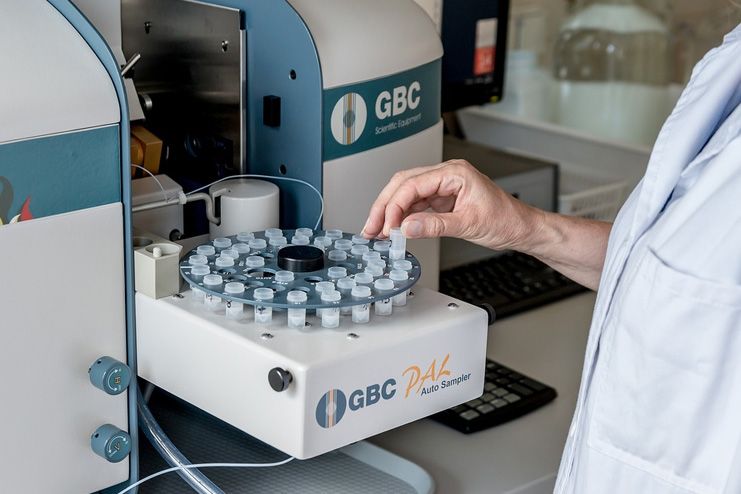
2. Electrocardiogram (ECG)

Any kind of abnormalities in the heart beating or function will be indicative of lesions and scarring in the heart walls and chambers or even for the thickening of the chamber walls.
3. B-type natriuretic peptide (BNP) blood test
Yet another specific test that is conducted for the diagnosis to cure congestive heart failure is the conduction of the B-type natriuretic peptide (BNP) blood test.
BNP is a compound which is naturally secreted by the heart when there are alterations in the blood pressure levels which could be indicative of the worsening condition of the heart. The levels of BNP in the bloodstream are indicative of whether or not your heart is in its primal condition or affected.
This is not necessarily the only mode of detection but it could be a potent marker.
4. Echocardiogram
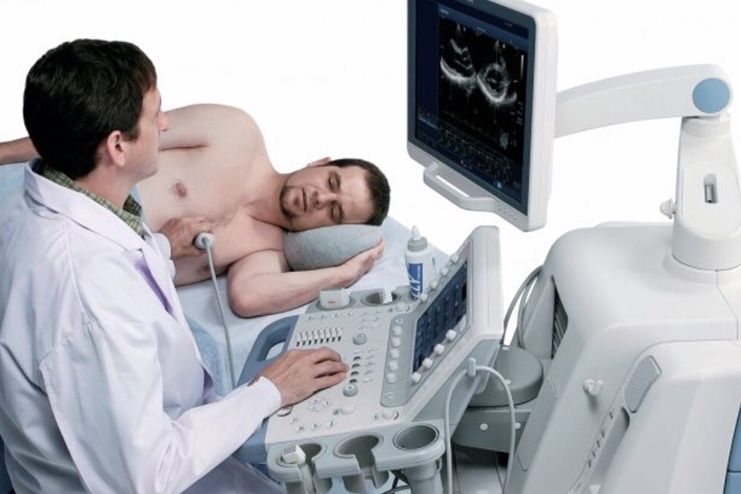

Echocardiogram makes use of the sound waves to record the activity and the functioning of the heart altogether. It is much like an ultrasound of the heart.
This is mainly important to detect any signs of labored blood flow, muscle damage or even an affected heart muscle that is not functioning properly.
Alternatively, even a common chest X-ray is advised and suggested by the doctors to be able to detect the issues associated with it altogether.
5. Ejection Fraction (EF)
Ejection fraction is a measure of the volumetric fraction of the fluid that is ejected from a heart chamber upon each contraction. This is significant of indicating how well the heart is pumping to be able to understand the severity of the condition altogether.
Knowing the EF helps in having an overall knowledge of determining if there is any kind of systolic dysfunction or even any kind of prevalent heart failure that is causing the condition to get worse altogether.
6. Stress Test

This test is conducted to see how well the heart performs under the levels of stress in the body. When you make the heart work harder, it is actually quite beneficial in diagnosing the problem even better.
7. Cardiac Catheterization


As you might be well aware, coronary arteries is a potent reason behind the possible induction of congestive heart failure.
Cardiac catheterization helps in detecting the blockages and find better ways to fizzle them out to ensure that the crisis can be averted. For this, the doctors predominantly just inserts a small tube into the blood vessel and then channel it through the upper thigh region.
How to Treat Congestive Heart Failure?


When it comes to finding ways to reverse congestive heart failure naturally, the only way to do so is by opting for a healthier lifestyle and a healthier diet.
It is actually quite important to ensure that you maintain a healthy lifestyle, and don’t take the symptoms lightly because that is what ends up being a problem in the long run.
The prospects of congestive heart failure treatment are actually on the rise, with the progressing research and studies surrounding the same. The main prospect of the treatment methods is to find better ways to seize the progress of the condition for the worse.
So, if you are looking around for treatment methods to get rid of congestive heart failure, the same does include:
1. Congestive Heart Failure Drugs
The very first prospect of treatment for CHF is to opt for drugs that would be helpful enough in combating the condition associated with this heart condition. There are a plethora of drugs that are available and if you are here wondering how the same does work, the options are quite abundant that we are going to be talking about.
2. Angiotensin-converting enzyme inhibitors (ACE)
The very first in the list of drugs to cure congestive heart failure are the Angiotensin-converting enzyme inhibitors. These inhibitors are actually quite helpful in opening up the narrowed blood vessels to enhance the blood flow through the vessels without any issues.
Often times, the people who face excessive side effects with the ACE drugs tend to opt for the common vasodilators which have similar impacts on the body.
Some of the common ACE inhibitors that the doctors prefer include Benazepril, Captopril, Enalapril etc.
3. Beta-blockers
Yet another one of the amazing group of drugs that is often prescribed for the overall betterment of the condition of the congestive heart failure on the whole is the beta-blockers.
Beta-blockers are predominantly used and prescribed for the overall prospect of managing and regulating the overall blood pressure in the body. If hypertension is one of the primary reasons behind the condition of CHF, beta blockers are quite effective in handling the condition effectively.
It is always best suggested to consult the cardiologist and even be clear about the past medical history to avoid any kind of negative side effects on the health.
Some of the common beta blockers that the doctors prescribe include acebutalol, atenolol, bisoprolol etc.
4. Diuretics
Last but not the least on the list of drugs that can help in the congestive heart failure treatment includes the usage of diuretics.
If you didn’t pay attention to in the beginning, retention of fluid is often the most common causes of CHF, mainly because of the accumulation of fluid around the major organs which can cause adverse effects and impose negative pressure on the heart as well.
The administration of the diuretics does help in getting rid of the excess fluid to maintain the proper homeostasis in the body.
Some of the common diuretics that the doctors tend to prescribe include thiazide diuretics, loop diuretics, potassium-sparing diuretics.
5. Surgeries
While this predominantly doesn’t necessarily fall under the prospects of drugs, it is often considered to be the last straw if nothing else works in this prospect.
This is often only opted for if the administered drugs fail to impose their much needed effects on the body.
Angioplasty is one of the most important forms of surgeries which are conducted to open up the blocked arteries to promote better and seamless blood flow altogether.
Heart valve repair surgery is also another one of the options when it comes down to the overall treatment procedures for curing and getting rid of congestive heart failure for good.
How To Prevent Congestive Heart Failure?
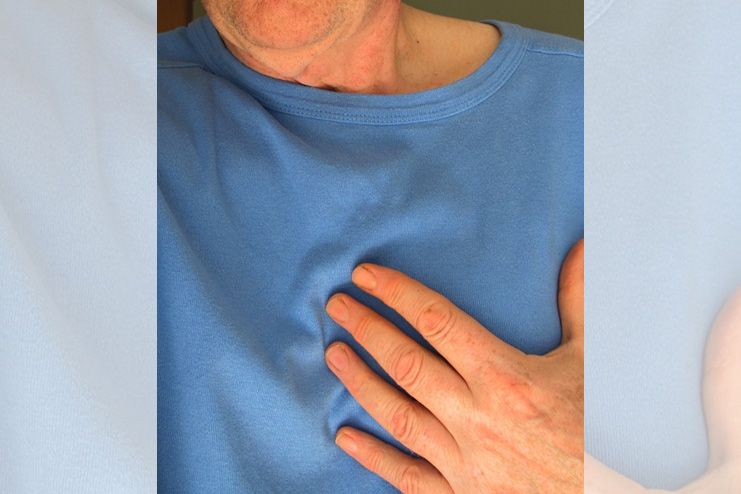
There are a number of ways in which you can work around to successfully able to prevent congestive heart failure without much hassle at all.
1. Maintain the Blood Pressure

It goes without saying that hypertension is one of the most common reasons behind the worsening condition of the CHF. If order to be able to maintain it, it is necessary you keep an eye out on the blood pressure in the body.
Maintaining proper levels of the blood pressure ensures that it does become a lot easier for the heart to pump the blood without any further negative impacts on the heart health.
2. Maintain a healthy diet

Consuming high calorie foods which consists of unhealthy fats can often be contributing to the condition of the worsening congestive heart failure.
It has been found that the progression of the CHF is often caused because of the lack of proper blood flow because of the affected blood vessels in the body. The intake of a healthy and a balanced diet has been found to be quite fruitful for the overall cure for congestive heart failure.
3. Maintain an active lifestyle

Weight gain owing to a sedentary lifestyle is one of the biggest enemies when it comes to heart diseases. For the best regulation and prevention of the condition, it is actually quite important to maintain a steady and active lifestyle and prevent unwanted weight gain which would turn out to be fatal for the health.
Even a study conducted by Harvard researchers suggest that engaging in a single session of exercise can help in long lasting protection and prevention from several heart conditions.
4. Don’t take the Symptoms Lightly

Given the fact that the signs and symptoms are often found to be very minute and short lasted, it is not at all surprising that many of us tend to take them lightly. That is the last thing you want to do.
If there is a persistent sign of any of the possible causes surrounding the condition of CHF, it is always best suggested to pay close attention to it, rather than striving it away.
Consult a doctor and get the symptoms checked out and clarified if the same is significant of any of the factors whatsoever.
Congestive heart failure isn’t something that affects you once; it is a work in progress. This is the primary reason why it is important to ensure that you follow a healthy lifestyle to avoid any kind of such unnecessary conditions in the long run.






























